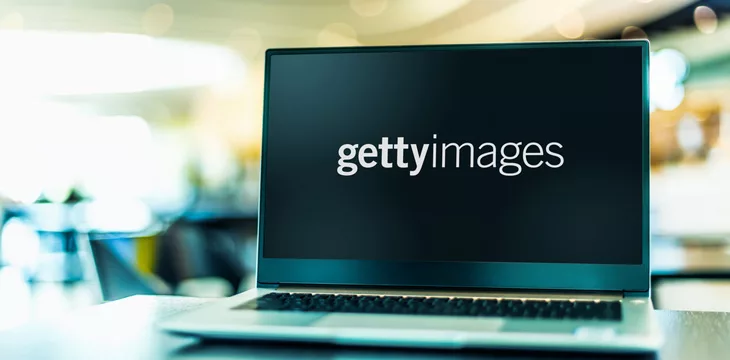|
Getting your Trinity Audio player ready...
|
Visual media company Getty Images (NASDAQ: GETY) has announced the launch of an artificial intelligence (AI) image generator designed to give users “full protection and usage rights.”
In a blog post, the company noted that the new tool achieves copyright-compliant status by relying exclusively on its library of licensed images in training its generative model.
Called Generative AI by Getty Images, the company added that apart from providing users with “commercially safe” images, the tool offers high-quality generated AI images capable of rivaling other industry first movers. The company hopes to lure users from other image generators like Midjourney and Stable Diffusion. These platforms have come under fire over the legality of their AI-generated images.
“We’re excited to launch a tool that harnesses the power of generative AI to address our customers’ commercial needs while respecting the intellectual property of creators,” said Getty Images CEO Craig Peters. “We’ve worked hard to develop a responsible tool that gives customers confidence in visuals produced by generative AI for commercial purposes.”
Getty Images disclosed via the statement that its AI tool will allow users to create images with “uncapped indemnification” thanks to the depth of its training. Trained exclusively on a “clean” database, Getty Images says it will be almost impossible to create deepfakes with its AI tool as the training process excludes public figures and the intellectual property of leading brands.
Users of the new AI tool can integrate the offering into their existing workflows and third-party applications via an API. Furthermore, Getty Images added that the AI service will offer greater customizable features, allowing users to add their proprietary data to generate images consistent with their brand.
The customization services are expected to be rolled out before the end of 2023, with Getty Images not disclosing the pricing details for the AI service.
“There are two things that I think are also unique about this,” said Peters. “It’s the only service that is indemnified and completely commercially clean and can offer the quality level that it does, but it can also be accessed via an API, which is pretty unique.”
Getty Images’ new AI tool leverages NVIDIA’s (NASDAQ: NVDA) Picasso, a “foundry for custom generative AI for visual design,” which the company says offers the best technical support given its access to GPUs and use of GANS text-to-image model.
Copyright issues threaten to tear the ecosystem apart
Since the middle of the year, AI-related copyright issues have spiked, with several IP holders dragging AI developers to court over infringement allegations. Getty Images has had its fair share of action, dragging Stable Diffusion to court over copyright violations in training its generative AI model.
“Fundamentally, we have a lawsuit against [Stability AI] for the misappropriation of our IP in order to train a model absent our permission and consideration,” confirmed Peters.
The Authors Guild is the latest to file a class-action lawsuit against OpenAI for violating the IP rights of its members as regulators clamber to launch a robust regulatory framework for AI and other disruptive technologies.
In order for artificial intelligence (AI) to work right within the law and thrive in the face of growing challenges, it needs to integrate an enterprise blockchain system that ensures data input quality and ownership—allowing it to keep data safe while also guaranteeing the immutability of data. Check out CoinGeek’s coverage on this emerging tech to learn more why Enterprise blockchain will be the backbone of AI.
Watch: Blockchain can bring accountability to AI

 09-18-2025
09-18-2025 





